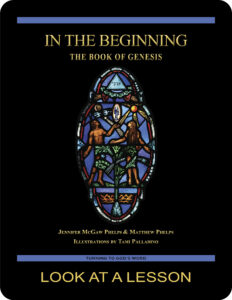sabbath
 The nature of the sabbath is the focus of an argument between Jesus and some Pharisees in the Gospel According to Luke 6:1–5 (NABRE). The central controversy they are debating is whether it is lawful for Jesus’ disciples to pick grain on the sabbath.
The nature of the sabbath is the focus of an argument between Jesus and some Pharisees in the Gospel According to Luke 6:1–5 (NABRE). The central controversy they are debating is whether it is lawful for Jesus’ disciples to pick grain on the sabbath.
The Hebrew word that comes to us as sabbath is related to the Hebrew verb שׁבת (shâbath), which specifically means to rest from work. The sabbath at its root is a day of resting from labor or from work. The later, more abstract meaning of the sabbath as a day of resting in the Lord is a Christian interpretation.
When Jesus argues with the Pharisees, then, from a legal standpoint the question should be whether any actual work was done. Picking heads of grain while walking along a field is not exactly the same as cultivating and preparing a crop. Jesus, however, does not choose to argue the specifics of what his disciples were doing. Rather, Jesus’ argument hinges on the idea that God is what’s important on the sabbath rather than resting from work.
related topics: order & chaos; religious law; rest; stopping
you also may like our study of the book of Genesis
 The first seven lessons of In the Beginning: The Book of Genesis, a 28-lesson Catholic Bible study with an imprimatur, provide an in-depth look at the very earliest biblical history—including the two accounts of Creation, events surrounding the Fall of Adam and Eve, the relationship between Cain and Abel, and the baptismal foreshadowing present in the account of Noah and the Flood. Remaining lessons look at lives of the patriarchs Abraham, Isaac, Jacob, and Joseph. Click on the book’s cover to view a sample lesson.
The first seven lessons of In the Beginning: The Book of Genesis, a 28-lesson Catholic Bible study with an imprimatur, provide an in-depth look at the very earliest biblical history—including the two accounts of Creation, events surrounding the Fall of Adam and Eve, the relationship between Cain and Abel, and the baptismal foreshadowing present in the account of Noah and the Flood. Remaining lessons look at lives of the patriarchs Abraham, Isaac, Jacob, and Joseph. Click on the book’s cover to view a sample lesson.
 Click on the picture of the statue of Moses with horns (above) to learn more about Lost in Translation. A new entry is archived each Monday. Contact us to receive Lost in Translation by email every week. You may use any of the contact links on our website to ask Matthew a question.
Click on the picture of the statue of Moses with horns (above) to learn more about Lost in Translation. A new entry is archived each Monday. Contact us to receive Lost in Translation by email every week. You may use any of the contact links on our website to ask Matthew a question.

Leave a Reply
You must be logged in to post a comment.